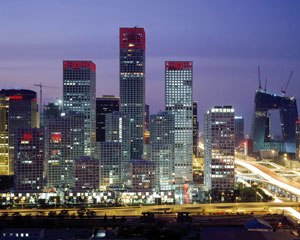 |
Its economy has been growing at the annual rate of 10 percent for most of the last 30 years. It is the largest exporter of goods in the world. Its per capita GDP is close to eight thousand dollars. It recently dislodged Japan to become the second largest economy in the world after the US. Its coastal cities are filled with tall and sturdy buildings, wide roads, high bridges and massive industrial complexes � all ready to inject a dose of massive inferiority complex to most Western cities whe n it comes to matters of infrastructure. Yet this country of 1.3 billion is ruled from Beijing by the Communist Party.
To learn more out about the software side of China's governance, I kept an open mind when I sat down with a Communist Party official earlier this week in Dalian. His explanations were as follows:
Feedback loops: Contrary to what outsiders think, the Party leadership is not rigid when it comes to making decisions. It does not first decide things then look for supporting arguments. It is open to information coming from all sides � from local governments, from the media and from the outsiders. It has a mechanism in place to read, examine and interpret information. This process provides constant feedback to the Party with regard to how it is perceived, how its decisions are being played out, and what needs to be done next.
Social experiments: Because political leaders in villages and cities are party members, the party can afford to run many small-scale social experiments and keep tabs on progress. For instance, it may start a new employment scheme in a small city, and monitor the results. If the results are satisfactory, the party may then roll out the scheme to several cities. At any time, there are thousands of such small social experiments that are going on, all providing feedback to the party, which discards what doesn't work and scales up what works.
Media: The party exercises considerable control over what gets printed, broadcast and transmitted over the Internet. But the people do not mind this sort of control as much as outsiders think. Taking a deep interest in the media helps the party understand people's thoughts and voices, and act accordingly. This is an example of caring for the people so that they do not fall prey to bad elements. Of course, the outsiders may say that the party cares too much about the media.
Adaptability: Outsiders have this mistaken view that the party is a rigidly doctrinaire Marxist-Maoist entity. It is not. It is fairer to look at it as a way of governance that has imbued communism with Chinese characteristics, foremost among which is being practical about things. It is more important to be practical than stick only to theories. The way Chinese leaders groom their successors is an example of being practical. Overall, the party is flexible, practical and adaptable to new information and ideas. Communist parties elsewhere failed to adapt, and became less relevant. Being adaptable helps the party to reach to new information and makes the decision-making process match what is actually going on in reality.
I was struck that the official described the party as a kind of Hayekian computer: feeding on millions of random bits of information to come up with practical decisions that are likely to have good consequences. True, much of it could be just spin. But there's no mistaking that amidst China's economic transformation, which started in 1987 and seems visibly hardware-led today, the software side of governance appears to have evolved over the years -- both as a matter of practical necessity and to assert China's interests in the world.



